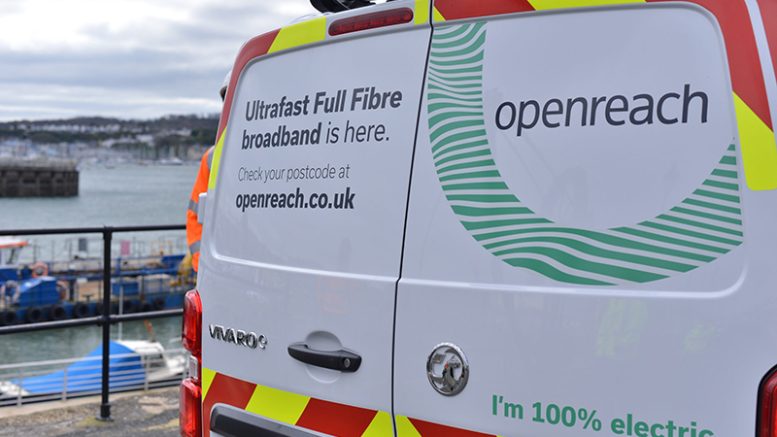The Government is considering introducing new legislation that would compel landlords to allow tenants to install fibre broadband in rental properties. The proposal, which stems from a campaign by Openreach, could become part of the Renters’ Rights Bill currently progressing through the House of Lords.
Baroness Janke has tabled an amendment to the Bill that would require landlords and letting agents to give consent for fibre broadband installation unless there is a valid reason to refuse. Under the proposed rules, landlords would need to respond to such requests within 28 days - or face penalties.
Push for modern infrastructure
The amendment has been strongly backed by Openreach’s Chief Executive, Clive Selley, who has highlighted the inconsistency in tenant rights. “It’s odd that a tenant will have more rights to request a pet, but not faster broadband,” Selley told The Yorkshire Post.
Selley argued that broadband should be treated as a basic necessity rather than a luxury. “It’s not very 21st Century because great broadband is pretty much an essential these days,” he said. “If the landlord isn’t interested or is a vacant landlord, then the renter has no right to request and plumb the place with fibre.”
He also pointed out that Openreach’s infrastructure work is often left incomplete due to permission barriers. “We already have fibre being laid outside of blocks of flats and apartments, but we’ve been unable to get permission to get inside and finish the job,” he added.
Landlords’ concerns over property control
Landlords have voiced concerns over the proposed amendment, arguing that it could lead to a loss of control over their properties and increased costs. While broadband installation may seem straightforward, it often involves drilling through walls, running cables through shared spaces, and making structural changes - all of which could lead to damage or costly repairs.
A spokesperson for the National Residential Landlords Association (NRLA) said that while improving digital infrastructure is important, landlords should not be forced into accepting every installation request. “Landlords need to maintain control over their properties,” the spokesperson said. “There must be safeguards in place to ensure that broadband installation does not result in damage or disruption to tenants and neighbours.”
In response to these comments a spokesperson from Openreach said. “On the issue of cost and disruption e.g. drilling through walls, structural changes etc - in a vast majority of cases, the installation of new fibre broadband can be made using the existing copper infrastructure. This means we’re able to use existing ducts, conduits, and risers to run fibre cables, reducing or negating the need for new drilling or construction. We already have access rights to enter communal areas in flats to repair existing, and ageing, copper network, but we cannot use those rights to upgrade tenants to faster and more reliable full fibre.
In addition, Openreach and other modern network builders employ a host of techniques and innovations designed to keep disruption to an absolute minimum.
It’s also worth pointing out - in addressing the argument about increased costs, that there is good evidence that full fibre can also help add value to properties - helping to attract and retain tenants. A recent government survey found that an increase in broadband speed could boost the value of a home by as much as £3,500.”
Government signals support for digital access
The Ministry of Housing has responded to the debate, indicating that the Government is keen to improve broadband access. A spokesperson stated, “Ministers are determined to close the digital divide and ensure everyone has access to fast and reliable broadband, no matter where they live or work. Our Renters’ Rights Bill will transform the experience of private renting, and we will respond to [Janke’s] amendment in due course while we continue to work with operators, landowners, housing associations and local authorities on this important issue.”
The Renters’ Rights Bill is expected to be debated further in the coming months. While improving digital access is a clear priority for the Government, landlords are likely to push back against measures that undermine their ability to control their properties. The question remains: will the Government strike a balance between tenants’ right to modern connectivity and landlords’ property rights?




